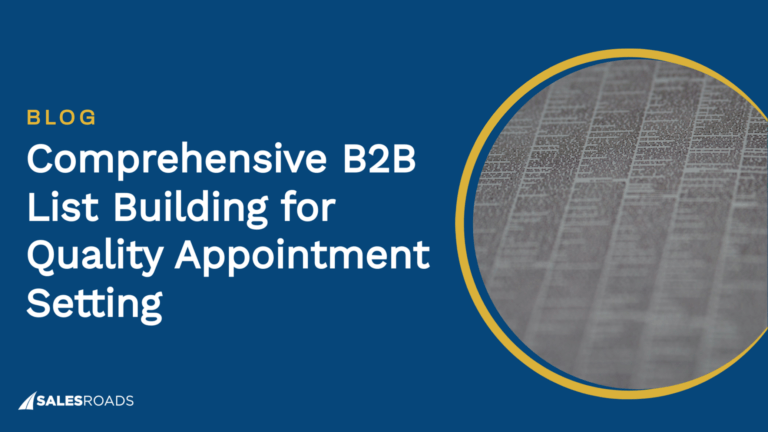The efficacy of a company’s salesforce is equivalent to its success. Salespeople are essential to generate revenue and drive business growth.
The sales profession has evolved into an occupation with proficient, influential people with in-demand skills across various industries. Deciding to pursue a career in sales is more than choosing a job; it’s choosing a path that intertwines personal ambition with professional growth.
How to Decide on Starting a Sales Career?
When contemplating a career in sales, several factors come into play that can significantly impact your success and job satisfaction.
It’s essential to consider the industry and specific career path you’re interested in, as these can dictate the nature of your role, the types of leads you’ll encounter, and the compensation structure. For instance, tech sales roles may offer different challenges and rewards compared to those in retail or manufacturing.
Equally important is introspection about your personal characteristics. Sales is a field that typically rewards self-motivation, a genuine interest in solving others’ problems, and the ability to work independently. Strong communication skills are non-negotiable, and a drive to continuously grow and develop professionally is highly valued.
Moreover, sales careers are often attractive due to their high-income potential, which is usually effort-based. This career path also offers the acquisition of in-demand soft skills and the opportunity to play a significant role in driving company growth.
In essence, a career in sales can be highly rewarding for those with the right mindset and skillset, offering both personal and professional growth.
Skills That Top-Performing Sales Professionals Have
The role of a sales rep is pivotal. It’s not just about making calls or sending emails; it’s about mastering a suite of skills that propel potential customers to effectively connect with prospects, understand their needs, and lay the groundwork for successful sales.
An SDR’s arsenal should be packed with competencies that range from technical prowess to emotional intelligence.
Let’s dive into some of these key soft and hard skills, each vital for carving a successful path in the realm of sales development:
Soft Skills
Active listening
Active listening goes beyond hearing words; it’s about comprehending the underlying needs and concerns of your prospects. It involves paying close attention, asking insightful questions, and showing empathy. Coupled with adaptability, it enables you to tailor your responses and solutions based on the prospect’s feedback.
The data reveals that the most successful B2B sales conversations typically maintain a 43:57 talk-to-listen ratio.
This means that leading B2B sales experts speak for about 43% of the interaction while giving their prospects the floor 57% of the time. This balance highlights the importance of not just presenting information but also actively listening to the client’s needs and responses.
Active listening skill is crucial in building trust and establishing a rapport that can lead to successful sales relationships.
Resilience
Sales is a field replete with challenges and rejections. Reps face countless objections throughout the day so objection handling is a critical skill for any SDR. It involves understanding the prospect’s concerns, empathizing with them, and providing clear, compelling responses that address those concerns.
The ability to skillfully navigate and resolve objections can turn a hesitant prospect into a committed customer.
Resilience in sales is the ability to bounce back from setbacks and maintain a positive, determined outlook. It’s about learning from each interaction and using that knowledge to refine your approach, which makes it vital for long-term success in sales.
Relationship-building
Building strong, authentic relationships with prospects is at the heart of successful sales. It’s about connecting on a personal level, understanding their challenges, and being genuinely committed to helping them succeed.
Effective relationship-building leads to trust, which is essential for converting prospects into loyal customers.
Top-performing SDRs believe the relationship doesn’t end when the prospect says “no.” Because a prospect to whom you’ve lost a deal carries more future opportunities than a cold lead that you’ve never engaged with.
David Kreiger, the President of SalesRoads, exemplifies this approach with a standout narrative on the Daily Sales Tips podcast: By keeping in touch with a prospect who initially chose a competitor, he unlocked doors to not one but two subsequent opportunities.
It’s often the post-“no” engagement that can convert missed opportunities into future successes.
Self-awareness
Self-awareness in sales involves understanding your strengths and areas for improvement. It’s about recognizing how your actions and communication style impact your interactions with prospects.
Being self-aware helps you tailor your approach, ensuring you are effectively meeting the needs of your prospects while also continuously improving your own skills.
Hard Skills
CRM software proficiency
CRM tools, like Vanillasoft, Salesforce, or HubSpot, are central to managing customer interactions and tracking sales progress. By mastering CRM software, sales reps can efficiently organize leads, monitor sales pipelines, and personalize customer interactions based on historical data.
This proficiency not only boosts productivity but also enhances the ability to forecast sales and understand customer behavior. As sales environments become increasingly data-driven, CRM skills are essential for any sales professional looking to stay competitive and effective in their role.
Data analysis and reporting
Data analysis and reporting skills are crucial for sales reps to make informed decisions. By understanding how to analyze sales data, reps can identify trends, assess performance, and pinpoint areas needing improvement.
This skill set enables them to craft more effective sales strategies and set realistic targets. Moreover, the ability to generate comprehensive reports is vital for communicating these insights to team members and management.
In essence, data analysis and reporting skills empower sales reps to transform raw data into actionable intelligence, driving more successful and targeted sales initiatives.
Cold calling techniques
Cold calling remains a fundamental skill in a sales rep’s arsenal. The ability to engage potential customers over the phone is invaluable. Effective cold calling techniques involve more than just script reading; they require understanding customer psychology, handling objections, and quickly building rapport. Developing these skills can significantly improve lead generation and conversion rates.
Moreover, cold calling teaches resilience and adaptability, traits that are beneficial throughout a sales career. As such, mastering cold calling techniques not only enhances immediate sales performance but also contributes to long-term career development in sales.
Sales Development Career Paths
Embarking on a sales career offers a dynamic and rewarding journey, characterized by diverse roles and opportunities for advancement. As you navigate through the sales landscape, understanding the nuances of each role is pivotal to your success.
Let’s delve into some key sales positions, unraveling their responsibilities and the average salary:
Entry/Mid-Level Roles
Sales development representatives (SDRs)
Sales reps play a vital role in the sales process, primarily focused on generating and qualifying new leads. Their responsibilities include researching potential clients, reaching out via email or phone, and nurturing these prospects to the point where they are ready for a more in-depth conversation with AEs.
A typical day for an SDR might involve:
- Lead Research: Identifying potential clients through various sources, including social media, industry events, and company databases
- Outreach: Contacting potential leads through cold calls, emails, or social media messages
- Follow-ups: Engaging with prospects who have shown interest, answering their queries, and maintaining the relationship
- Qualifying Leads: Assessing the potential of leads to determine if they meet the criteria for further sales engagement
- Collaboration: Working closely with sales teams to hand off qualified leads and discuss strategies
- Data Management: Updating CRM systems with information gathered from interactions with prospects
- Performance Review: Analyzing outreach efforts and results to refine strategies
This role is crucial in building a pipeline of potential customers and requires a mix of research, communication, and organizational skills.
Account executives (AEs)
Account executives are responsible for converting qualified leads into paying customers. They manage the entire sales cycle, from initial contact to closing the deal. Their tasks include presenting products or services to potential clients, negotiating contracts, and finalizing sales.
A typical day for an AE might involve conducting meetings or calls with prospects, preparing and delivering presentations, collaborating with the marketing team for targeted pitches, and managing their sales pipeline.
Account managers
Account managers focus on maintaining and growing relationships with existing clients. Their primary goal is to ensure customer satisfaction and identify opportunities for upselling or renewing contracts.
A typical day for an account manager could include regular check-ins with clients, addressing any concerns or issues they might have, discussing new products or services that could benefit the client, and working on tailored solutions to meet client needs. They also collaborate with internal teams to ensure client requirements are met.
As of November 2023,
| Role | Average Annual Pay |
| Sales Development Representatives (SDRs) | $77K/yr |
| Account executives (AEs) | $116K/yr |
| Account Managers | $94K /yr |
Managerial Roles
Sales development managers
Sales development managers (a.k.a talent dev. manager) oversee the performance and training of reps. They are responsible for setting sales targets, developing strategies to meet those targets, and ensuring the sales team’s effectiveness.
A typical day might include analyzing sales data, conducting team meetings to review performance and strategies, providing training and coaching to SDRs, and collaborating with other departments to align efforts.
We have an insider interview with SalesRoads Talent Development Manager, Brenda Knien, to talk about her approach to coaching and managing SDRs. You can watch the full conversation below:
Business development managers
Business development managers focus on creating growth opportunities for their company. This includes identifying new markets, partnerships, and strategies to expand the business.
Their daily activities may involve researching potential business opportunities, networking with industry professionals, negotiating partnerships or deals, and developing proposals for new business strategies. They often work closely with the sales and marketing teams to implement these growth strategies.
As of November 2023,
| Role | Average Annual Pay |
| Sales development managers (SDMs) | $94K/yr |
| Business development managers (BDMs) | $128K/yr |
Executive Roles
Director of sales
The director of sales holds the crucial responsibility of overseeing the sales department’s strategy and execution. On a typical day, they might start by reviewing the previous day’s sales performance and analyzing key metrics to assess the effectiveness of sales strategies.
They frequently meet with sales managers to discuss progress and challenges and plan future campaigns. Part of their day is often dedicated to strategizing, which involves developing new sales processes, setting annual goals, and managing the sales team’s budget. They also play a pivotal role in inter-departmental collaboration, ensuring the sales strategy aligns with the overall business objectives.
Chief revenue officer (CRO)
CROs hold a top-tier position in the sales hierarchy. They oversee all aspects of an organization’s revenue generation. Their day often begins with analyzing financial reports and sales forecasts to gauge the company’s financial health. They spend considerable time developing and refining strategies for increasing revenue, which could involve exploring new markets, optimizing pricing strategies, or launching new product lines.
Collaboration is key in their role, so they frequently interact with various departments like sales, marketing, and product development to ensure cohesive efforts toward revenue goals. They also typically engage in high-level meetings with other executives to align revenue generation strategies with the company’s broader goals.
Executive vice presidents of sales and global heads of sales
These senior roles involve overseeing the sales strategy on a broad scale, often on a national or global level. A typical day for these executives includes analyzing market trends to identify new sales opportunities or potential areas of expansion.
They spend a significant part of their day in strategic planning, setting long-term objectives, and developing initiatives to achieve these goals. They also maintain relationships with key clients and partners, representing the company at major industry events or in high-stakes negotiations.
Managing and mentoring regional sales managers and teams is another critical aspect of their role, ensuring that the sales force is well-aligned with the company’s strategic vision.
As of November 2023,
| Role | Average Annual Pay |
| Director of Sales | $246K/yr |
| Chief Revenue Officer (CRO) | $499K/yr |
| Executive Vice President of Sales | $375K/yr |
Advantages and Disadvantages of a Career in Sales
A career in sales can be both rewarding and challenging, offering a unique set of benefits and drawbacks.
Advantages
- High earning potential: In sales, income often directly correlates with performance. This means successful sales professionals can achieve high earnings through commissions and bonuses, making it a lucrative career choice for those who excel.
- Skill development: Sales roles are instrumental in developing a wide array of skills. From mastering the art of negotiation to refining communication tactics and strategic planning, these skills are not only valuable in sales but also transferable to many other career paths.
- Career advancement opportunities: The sales field offers a clear trajectory for career growth. Starting from entry-level positions, diligent and successful salespeople can climb the ladder to managerial and even executive roles.
- Variety and flexibility: Sales jobs are often dynamic, involving a range of activities from client meetings to strategy development. Many sales roles also offer the flexibility of remote work and adaptable schedules.
- Impact on business growth: Sales professionals play a direct role in driving a company’s revenue and growth. This impact provides a sense of accomplishment and the ability to see the tangible results of one’s efforts.
Disadvantages
- Performance pressure: Sales positions typically come with targets and quotas. This performance-based nature of the job can create significant pressure and stress, especially in highly competitive environments.
- Rejection and uncertainty: Dealing with rejection is a common aspect of sales, as not every client interaction leads to success. Additionally, the fluctuating nature of sales, particularly in commission-based roles, can lead to income uncertainty.
- Constant need for adaptation: The sales industry is fast-paced and ever-evolving. Sales professionals must continuously adapt to new products, changing market conditions, and evolving sales techniques.
Bottom Line
Ultimately, a career in sales is a tapestry of opportunity and challenge, blending potential high earnings and skill development with the realities of performance pressure and the need for constant adaptation. For those equipped with resilience, adaptability, and a drive for growth, the world of sales offers a rewarding journey of professional and personal development.









